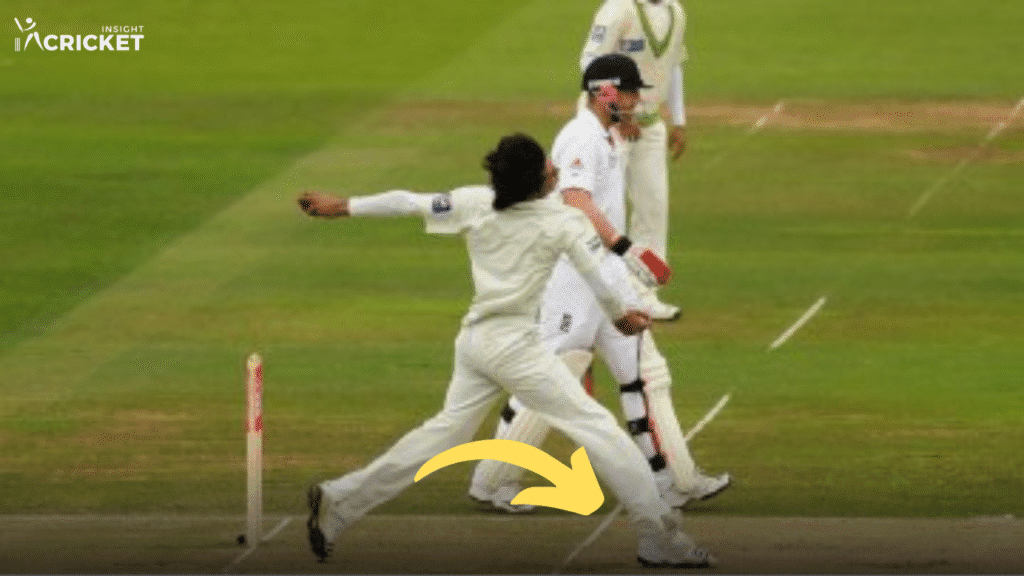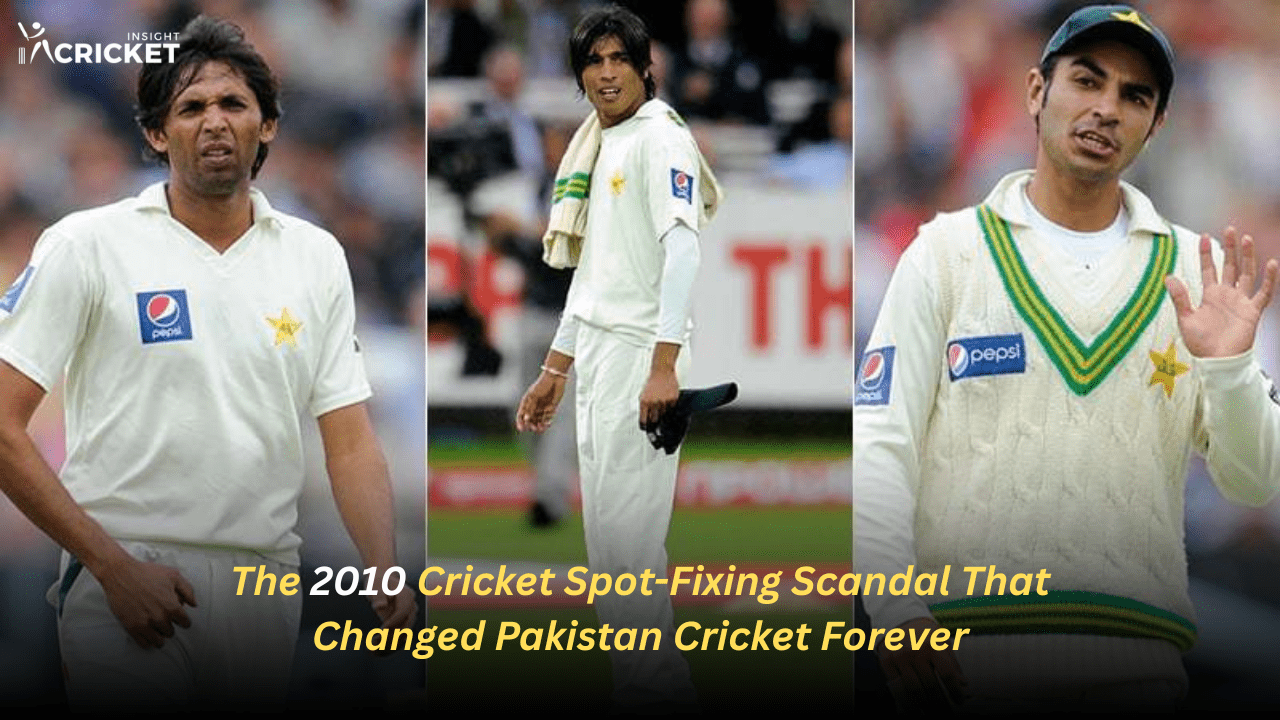Cricket fans around the world often remember matches for stunning performances or dramatic finishes. But in 2010, during a summer Test series in England, cricket was remembered for something far darker — a scandal that brought shame to Pakistan cricket and stunned the global cricketing community.
Thank you for reading this post, don't forget to subscribe!The controversy centered around three Pakistani players: fast bowlers Mohammad Amir, Mohammad Asif, and then-Test captain Salman Butt. What unfolded at Lord’s Cricket Ground during the fourth Test against England became one of the most infamous chapters in the sport’s history.
How It All Began
At first, there was no sign of trouble. The match progressed like any other high-stakes Test. But behind the scenes, an undercover investigation by the British tabloid News of the World had revealed a web of corruption.
Posing as wealthy bettors, journalists caught Mazhar Majeed, a UK-based sports agent, accepting money in exchange for guaranteed spot-fixing — moments in a game that don’t necessarily affect the outcome, like bowling a no-ball at a particular time. Shockingly, Majeed claimed he could control players on the team and even detailed when no-balls would occur.
Just as predicted, Amir and Asif delivered blatant no-balls, timed down to the over. The visuals were hard to deny, and within days, headlines around the world exploded with accusations of cheating.

The Players Involved
- Mohammad Amir, just 18 years old, was considered Pakistan’s next big fast bowling star. He had raw pace, swing, and composure — rare traits at such a young age.
- Mohammad Asif, already a seasoned bowler, had been involved in controversies before but was undeniably talented.
- Salman Butt, the team’s captain, was accused of being the mastermind behind the operation, encouraging the bowlers to comply with the fix.
The evidence gathered by the newspaper, including video recordings and marked banknotes, left little room for doubt.
Immediate Aftermath
When the story broke, it sparked outrage. The ICC (International Cricket Council) launched an investigation, and all three players were suspended. Fans across Pakistan felt betrayed, especially by Amir, whose rise had offered hope in a struggling cricket setup.
In early 2011, the ICC announced their verdict:
- Salman Butt received a 10-year ban (with 5 years suspended).
- Mohammad Asif was banned for 7 years (2 suspended).
- Amir got a 5-year ban, the shortest, due to his age and level of involvement.
Jail Time in the UK
The scandal didn’t just end with bans. In the UK, the trio was also prosecuted for conspiracy to cheat and accept corrupt payments. All three were found guilty.
- Salman Butt was sentenced to 30 months in prison.
- Mohammad Asif got 12 months.
- Mohammad Amir, the youngest and arguably the most remorseful, received 6 months.
- Mazhar Majeed, the fixer, was sentenced to 32 months behind bars.
Though the players served reduced terms, their reputations were severely damaged.
Divided Reactions
The cricket world responded with disbelief and disappointment. Some former players called for lifetime bans, while others expressed sympathy — especially for Amir, who was seen as a naive teenager led astray.
Cricket legends like Imran Khan and Michael Holding condemned the act but also lamented how poor guidance and lack of education about corruption might have played a role in the younger player’s downfall.
Amir’s Return – A Second Chance?
In 2016, after serving his full ban, Mohammad Amir returned to international cricket. His comeback wasn’t welcomed by everyone. While some believed he deserved a second chance, others felt letting him wear the national jersey again set a bad precedent.
Despite the divided opinions, Amir played a key role in Pakistan’s historic 2017 Champions Trophy win, delivering a brilliant spell in the final against India. He silenced critics — at least temporarily — with his on-field performance.
As for Salman Butt and Mohammad Asif, neither managed a return to international cricket. Although both tried to rebuild their careers through domestic cricket, the door to Pakistan’s national team remained firmly shut.
Lessons Learned
The 2010 scandal left a permanent scar on Pakistan cricket. It served as a brutal reminder of what can happen when money, greed, and poor mentorship come into play. Since then, the Pakistan Cricket Board (PCB) and the ICC have introduced stricter anti-corruption training for young cricketers.
Yet, the scandal is often brought up as a cautionary tale — one where raw talent was squandered due to poor decisions and misplaced trust.
Final Thoughts Pakistan Cricket
The events at Lord’s in 2010 weren’t just about a few no-balls. They reflected a much deeper issue — the vulnerability of young athletes in a high-pressure environment. While cricket has moved on, the scars from that incident remain a part of its history. For fans, it was a heartbreaking reminder that even their heroes can fall.
